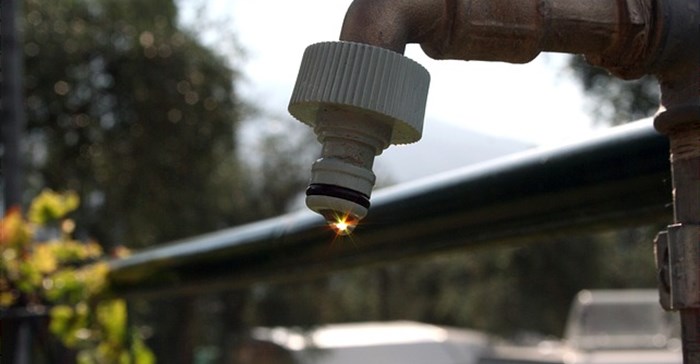The government is to announce major plans to deal with the devastating drought and water restrictions that have crippled many parts of the country.
This morning the departments of Health, Water and Sanitation, Agriculture and Rural Development will give details of the impact the drought has had and how water distribution will be managed.
• The Department of Environmental Affairs is expected to give an overview of weather patterns, as predicted by the weather service, and the implications.
• Water and Sanitation Minster Nomvula Mokonyane will provide a breakdown of the state of water supplies in the country and possible interventions to ensure efficient management of what there is.
• Agriculture will announce assistance to be given to farmers.
• Rural Development will present options for providing state-owned land for livestock grazing in order to avoid slaughtering.
• Health will explain the impact of the crisis on healthcare and interventions needed to ensure facilities continued to function properly.
Yesterday Minister of Cooperative Governance and Traditional Affairs Pravin Gordhan said the water shortages in Johannesburg were not a crisis but a "problem", stemming from adverse weather conditions and water management issues. "We do have a problem, but we cannot describe anything as a crisis. A crisis is something that is unmanageable," said Gordhan.
If you can't measure something you can't manage it
Water expert Anthony Turton welcomed the integrated planning approach by national departments but said the government must invest in rainfall-gauging stations that could help to contribute to water collection. "What we are finding is that official government data is poor quality and better data is obtained from commercial farmers. This is a serious problem. If you can't measure something you can't manage it," said Turton.
Though hard infrastructure such as dams, pipelines and reservoirs needed attention, Turton maintained that data infrastructure was vital in managing water supply and pumping money into hard infrastructure was a direct result of mismanaged municipal systems. "We are entering a deep, protracted drought period. We can never predict how long a drought will last. Statistically, we are in for deep drought that can last more than a year and up to 10 years. We could have drought-equipped ourselves better," he said.
Disastes areas and water restrictions
Amid reports that the worst drought since 1992 was threatening the country's maize crop, KwaZulu-Natal was declared a disaster area late last month as dams dried up.
As temperatures soared in Gauteng and reservoirs dried up, parts of Johannesburg were left without water this week, affecting hospitals and schools. Gordhan said restrictions and disruptions in the city were not related to the drought.
City of Joburg mayor Parks Tau said the water system in the city was not in a crisis and disruptions were attributed to increased demand and pressure on supply. "High-lying areas continue to be affected because, while we do maintain general reserves in the city, with current supply constraints we cannot reach the levels that pump water up into the system," he said.
Tau said certain suburbs were using 46% of water on gardens, placing pressure on water systems.
Source: The Times

















































